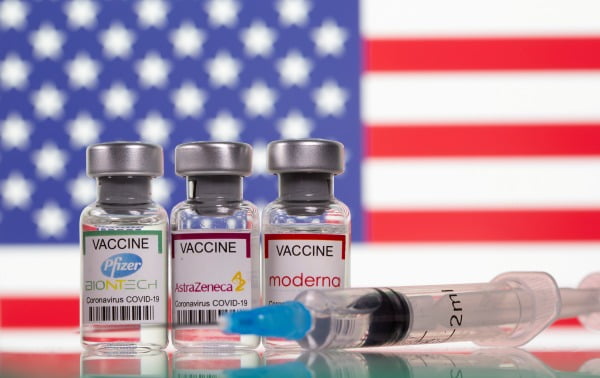
A vial containing AstraZeneca, Pfizer, and Modena vaccine respectively. Reuters Yonhap News
Suspects have been raised that the results of clinical trials for the AstraZeneca (AZ) vaccine may contain outdated information that is not current. Unlike other vaccines such as Pfizer, Modena, and Johnson & Johnson, it is observed that approval for urgent use of the AZ vaccine may be delayed.
On the 22nd (local time), the Data and Safety Monitoring Committee (DSMB), an independent organization evaluating the clinical results of drugs in the United States, told the National Institute of Allergy and Infectious Diseases (NIAID), The Wall Street Journal (WSJ) reported on the 23rd.
“DSMB was concerned that if out-of-date information was included, the full efficacy data of the vaccine would not be available,” NIAID said. He urged, “The pharmaceutical company should disclose the most accurate and up-to-date efficacy data as soon as possible.”
In addition to NIAID, DSMB also forwarded the same suspicion to AstraZeneca and the US Department of Health and Welfare’s Advanced Biologics Research and Development Administration (BARDA).
Anthony Pouch, director of NIAID, appeared on ABC on the same day and criticized indirectly that “AstraZeneca’s clinical trial data are pretty good, but the media reports made with this data are not completely accurate.”
In response, AstraZeneca promised to share the latest efficacy data with DSMB and announce the analysis results within 48 hours through an emergency press release.
Earlier, on the 22nd, AstraZeneca announced that it showed an average of 79% efficacy in a phase 3 clinical trial conducted on 32,000 people in the United States. He explained that it was effective in all age groups, including the elderly, and did not increase the risk of clot formation.
Based on these test data, AstraZeneca plans to apply for emergency use approval from the US Food and Drug Administration (FDA) and the Centers for Disease Control and Prevention (CDC) in the early and mid next month.
However, as the US health authorities’ doubts about AstraZeneca grow, it is said that it is uncertain whether it will obtain approval for use in the near future.
Earlier, more than 20 countries, including Europe and Asia, temporarily suspended the vaccination and resumed it, claiming that several cases of blood clots occurred after vaccination in mid-month.
New York = Correspondent Jae-Gil Cho [email protected]
Ⓒ Hankyung.com prohibits unauthorized reproduction and redistribution
